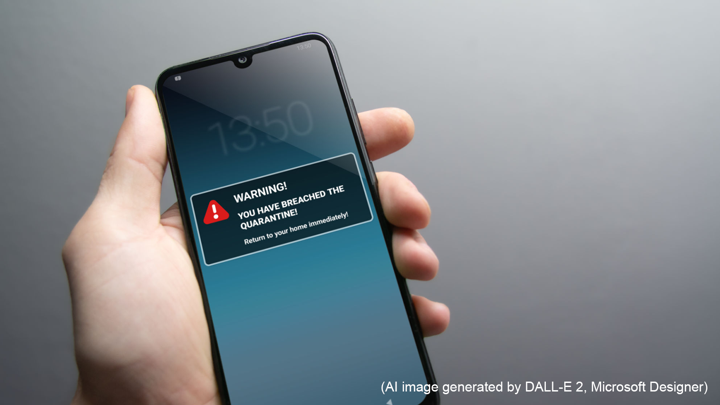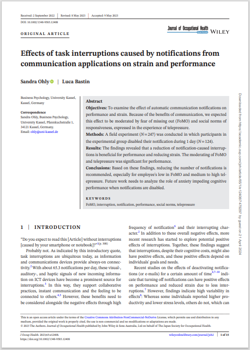#0152 Task Interruptions by Notifications—High Strain or High Performance?

Task Interruptions by Notifications—High Strain or High Performance?
Is it possible to be fully disconnected in today’s world? Probably not, if your mobile or other electronic devices are connected to the internet. Either you are bombarded with notifications or you are checking your devices frequently for messages. Either way, both actions can increase your anxiety from the fear of missing out. Interruptions can affect work productivity and quality due to loss of concentration and creation of errors that can lead to frustration and strain. Some people can get irritated and frustrated by constant interruptions, although some interruptions can be positive as they force you to take a badly needed break. Not everyone is annoyed by constant notifications, however, as they like feeling connected to others, although this behavior in the workplace is not always desirable.
In this article, the authors investigated why turning off notifications will affect some people who fear missing out. They believe that a better understanding of the effects of interruptions by notifications could improve work performance. One of the social concepts investigated in the paper was telepressure, which is the preoccupation to respond immediately to notifications, e.g., ASAP.
The study was conducted in Germany and recruited participants through social networks and personal contact. About 247 working persons and students participated, the majority of whom were female (162) and aged 30 years and younger (80%). The authors analyzed how people reacted to turning off notifications by randomly assigning people to one of two groups and observing their responses. One group blocked all notifications for one day before the experiment, while the other used basic notification settings. The researchers measured the frequency of interruptions and internal interruptions, i.e., how often they stopped to check messages, based on participants’ reports.
The results showed that the blocked group appeared more productive and focused on their tasks. The fact that they did not have to mentally split their attention between tasks and had fewer interruptions was possibly a plausible reason. People also appeared less irritated, less stressed, and more focused when notifications were reduced. However, much of the results will depend on the individual. If a person is highly motivated to keep themselves up-to-date with current events, then they are more likely to be influenced by notifications as interruptions. Overall, the authors recommend that reducing the number or timing of notifications could help those in fear of missing out be more moderate in responding to notifications.

Link to the original journal article:
https://academic.oup.com/joh/article/65/1/e12408/7479297
Title of the paper:
Effects of task interruptions caused by notifications from communication applications on strain and performance
Authors:
Sandra Ohly, Luca Bastin




